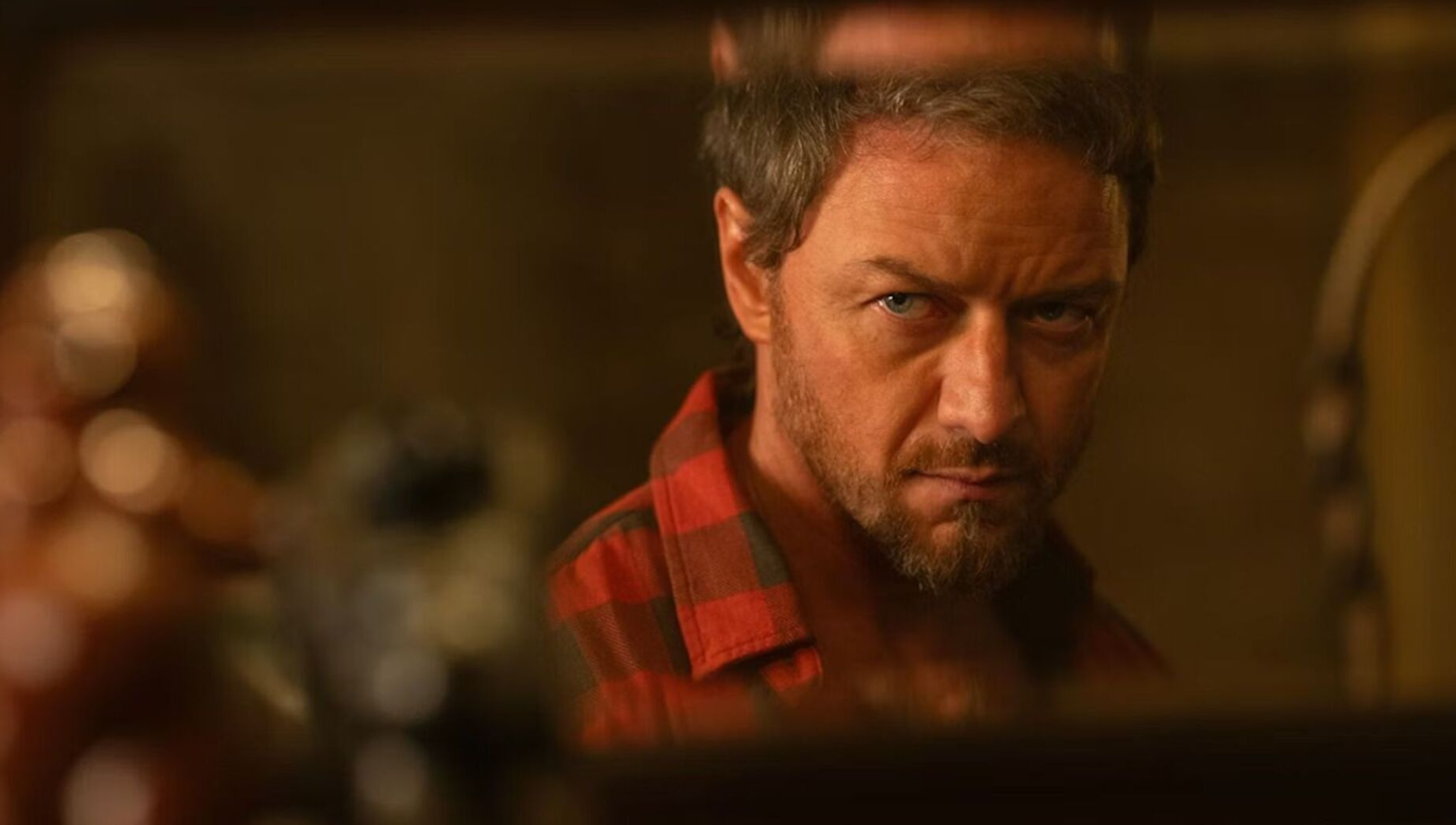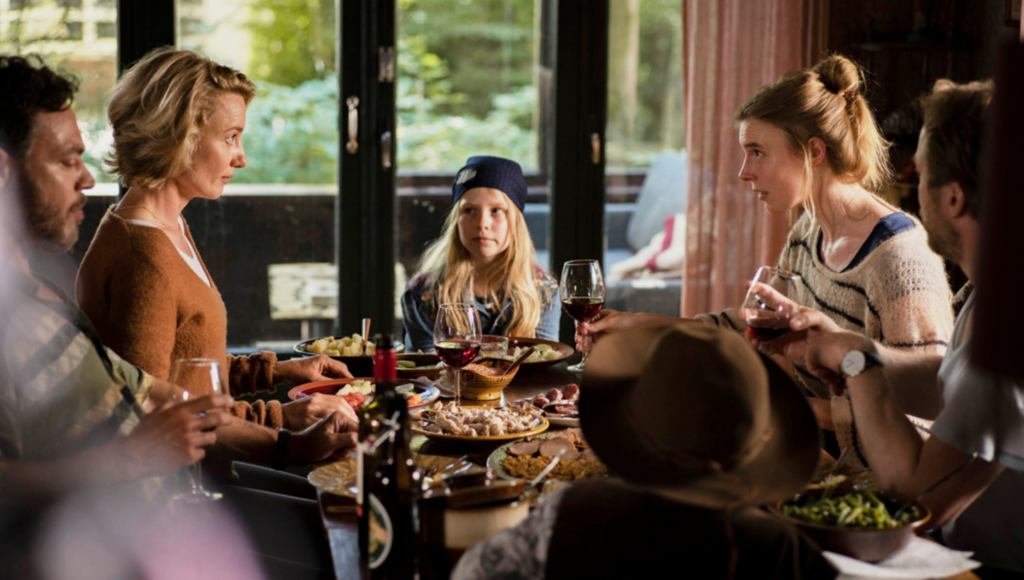
Speak No Evil
Mark White
Speak No Evil – the original from 2022 – sent a shiver down the spines of European filmgoers upon release. Here was a modern horror thriller that dared to awkwardly gaze back at its audience, its brutal climax a jarring condemnation of ‘continental hospitality’ and societal demands of the accommodation of others at the sacrifice – or harm – of one’s self. The film’s plot, its deliberate slow burn pace, and the incredible acting that doled out equal measures of angst, shame, fear, and – most loudly of all – cringe-worthy embarrassment all galvanize into a violent and disturbing criticism of modern perceptions of tolerance, safety, and the economic classes in modern-day Europe. The 2024 remake takes almost the entirety of the script and story verbatim before transposing its ending for an Americanized understanding of those themes and ideas that lose the gut-wrenching honesty of the original while adding flashy Hollywood action and tension.
Ben and Louise Dalton (Scoot McNairy and MacKenzie Davis), a demure American couple vacationing in Tuscany with their young daughter Agnes, meet Paddy and Ciara Feld (James McAvoy and Aisling Franciosi) – a dynamic and charmingly adventurous British couple – at their hotel. Paddy, loquacious and extremely outgoing, actively – perhaps forcibly – ingratiates himself with the Daltons; Paddy is all Vespa rides with Agnes, lunchtime (and pranks!) in the sun, an overall jocular being with a view on life that Ben seems to quietly admire, but that also makes Louise slightly uneasy. The Felds are also on vacation in the area with their young son Ant, who is apparently mute and, as a result, very withdrawn and shy. By the end of the Daltons’ sojourn in the Italian sunshine, Paddy and Ciara make a very open invitation for them to visit them at their home in Devon in the UK. As it turns out, the Daltons immigrated to London from Chicago and have been struggling both to recover from the chaos of the last few years, both socially and economically. “Yeah… That’d be great,” says Ben, reservedly, smiling between Paddy and Louise. It is a half-sincere acceptance for what must be a commonly overextended act of ‘holiday friendship’ – who hasn’t said something like that with the ‘friends’ they made around the pool or the resort? It is, after all, only polite.
But a few weeks back home in London, the Daltons receive a photo postcard from Paddy – a photo of all six of them back in Italy – inviting them again to visit in Devon; Ant misses Agnes’ friendship, they loved meeting them, and there are promises of a quiet and relaxing rural life for a weekend that seem like a reprieve from the empty and stressful world Ben feels he is stuck in…but Louise says that it feels like a lot of effort – a whole weekend – for people that they barely know. But sensing Ben’s need, Louise backtracks and says they should go. And so, the Daltons set out for Devon for a weekend with the Felds that turns out to be anything but quiet and relaxing; as the weekend trudges on – full of awkward and bizarrely tense exchanges, personal boundaries being crossed, and Ant sharing a big secret with Agnes – The Daltons will wish they had kept to themselves in Tuscany and adhered to two very simple words: stranger danger.
Director James Watkins’ screenplay adaptation for this remake is lifted – sometimes in whole scenes or exact pages of dialogue – straight from the Danish original. In fact the film is a scene-for-scene remake for about two-thirds of the film, merely swapping finite details in the mix to change things up: Devon, UK instead of the Netherlands; names of characters tweaked here and there to match location; small changes to wording to sound more Anglo-American rather than mainland European. Largely intact are the misanthropic ‘cringe’ scenes from the original as well. Everything from overreactions on parental control (the children dancing scene, taking another person’s child to bed), sexual expression in public (roadhouse dinner for the couples), flagrant disregard for wishes and beliefs (the vegetarian forced to eat meat) are all here and accounted for, all enacted on the visiting couple to make them as uncomfortable as possible, and the audience along with them. A few small exchanges have been written in to add tension and complexity to the central relationship between Ben and Louise, as well as some moments that clearly set Paddy up as the key influencer and abusive mastermind to the game being played on this Devon farm, but for those familiar with the film’s predecessor, it sticks very closely to the original script…until it doesn’t.
This very Americanized remake of the Danish thriller takes new but disappointing narrative paths, steered by a feral but charming McAvoy as a middle-class monster.
Right around the time that Paddy becomes unhinged at Ant’s failed dancing at lunch – much to the abject shock and horror of Ben and Louise – Watkins’ script goes in a very different direction: Ant reveals the murdering of couples and the replacement of children to Agnes by leading her to Paddy’s secret room under the barn, showing her all the travel photos of each kid being replaced through the years and, how Paddy cut his tongue out. Scared out of her mind, Agnes hurriedly shares her discovery with her parents, who then attempt to get away as quickly as possible. Naturally, the Felds realize that the Daltons have figured out what is going on as they attempt to leave, setting the stage for a home-invasion style fire fight for the Daltons to escape with their lives.
What makes this deviation so interesting is that it speaks to several things about European filmmaking versus American film making; the Danish original is soaked in nihilism with only one scene involving any bloodletting, while the American remake amplifies the blood-letting and dumps the darkness to make way for clear-cut exposition amongst jump scares and desperate fighting in the final act. European audiences were repulsed and shocked by the distinct emotionless and vile madness at the center of the hosting families acts, all obscured by the socially re-enforced ‘politeness’ of the visitors that keeps being prayed on – all of which seemed to bore or frustrate American audiences. Conversely, the American remake looks to give cathartic meaning and ‘reason’ to the madness of the hosts and give emotive outlet to the host child (Ant) and the visitors as true victims, all of which feels excessively loud and undercuts the horror of what the original story is all about – the fear of strangers. While the American remake now has a ‘climactic’ finale full of gusto and revelation, it is no longer horrifying. It is intense and maintains healthy suspense based on what came before, but it is not horrifying.
All the actors in the American Speak do quality work in making each scene as tense or awkward as they can, and with the extra details tossed in now for more robust character development, they juggle the horror and the humanity rather well; McNairy and Davis are so convincing as modern parents struggling to balance work and commitments to each other while caring for a very socially anxious daughter. McAvoy’s intensely red-blooded would-be patriarch stands out, in part because of the way that McAvoy can so skillfully dart his eyes and twitch his cheeks and fill the room with his presence, but also because the script makes him out to be this severely damaged man who has so many axes to grind that he lashes out at the world and takes what he needs to make a ‘perfect family’ – his teased backstory and all his violent actions add so much color to the infamous line, “Because you let me.” But there is something too intense about McAvoy’s Paddy – and the remake overall – that takes away from the deeply disturbing horror that came with the original. The Danish original understood a very simple truth about modern human social behavior: we are trained to accommodate and be polite for others in our lives, and that in doing, so we are left vulnerable, whether we like to acknowledge that or not. The act of being polite or kind can be our undoing if we lose our ability to access or react to danger or risk. In McAvoy’s portrayal, the risk and danger is so heightened and foreshadowed that there is no other way for the story to go but into violent madness at high volume; with the original, the risk and danger is always obscured by a plausibility of doubt and the need to be as polite as possible – because that is how civilized people behave. Social commentary about class and wealth may give some reason as to why people may be motivated to do what they do, but in the end the question will always come down to whether or we can trust others, and whether or not we may practice giving too much space in our lives to others for the sake of appearances. The original film tells us that kindness is the ultimate goal and it costs us nothing to offer, but to beware those who may take it so easily in exchange for more, or something else entirely; the cost may be steep if we do not keep ourselves a priority in some way.
Perhaps, in hindsight, the remake and the original are two different films sharing the same story; one is a nihilistic chiller that dares you to question if you can ever trust other people; the other a thriller that shows what happens when you trust the wrong kinds of people. Both effective – and the remake is well made and tailored for a night at the movies with a crowd to groan and giggle and gasp at all ‘the awkward’ and all the horror on screen. But effective thriller and affecting misanthropic nightmare are also two very different movies, and for the sake of argument, the old adage of remakes never besting the original still holds true here.
Final Thought
If you have not seen the original, 2024’s Speak No Evil will be a thrill ride; if you’ve seen the original, skip the remake and let that haunt you like it should.

